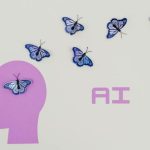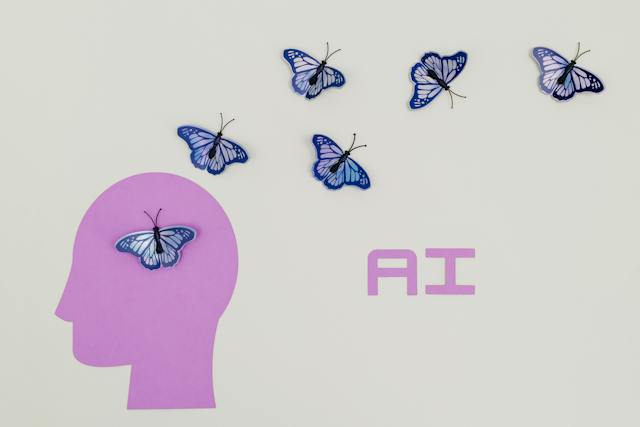In today’s fast-paced world, the quest for knowledge and personal growth knows no age limits. Lifelong learning is the key to continually expanding your horizons, cultivating new skills, and fostering a deep love for acquiring wisdom. Whether you’re a student, a professional, or someone with a curiosity about the world, the pursuit of lifelong learning is open to everyone. In this comprehensive guide, we will explore essential steps and strategies to become a lifelong learner.
1. Discover Your Learning Style
Understanding your unique learning style is the first step on your journey to lifelong learning. Everyone has a preferred method of acquiring knowledge, whether it’s visual, auditory, or kinesthetic. Take the time to identify your dominant learning style and use it to your advantage. Platforms like YouTube offer a wealth of tutorials and visual resources for visual learners, while audiobooks and podcasts cater to auditory learners. Embrace your learning style, and it will become a powerful tool in your educational arsenal.
2. Embrace Your Interests and Talents
To embark on the path of lifelong learning, it’s crucial to explore a wide range of interests and talents. Don’t limit yourself by believing you’re only good at a few things. The experiences and skills you develop over time can lead to unexpected passions and expertise. Be open to revisiting activities you may have disliked in the past, as your maturity and perspective can drastically change your perception. For example, a childhood fear of riding a horse might prevent you from experiencing a thrilling adventure as an adult. Embrace change, and let go of past inhibitions to unlock your true potential.
3. Foster a Positive Attitude Towards Learning
Learning should never feel like a chore; it should be a source of joy and personal growth. Embrace the subjects and topics you’re passionate about while also tackling the necessary ones. Remember the history lessons that seemed dull in 8th grade? Those seemingly insignificant details are the building blocks that connect knowledge later in life. Go beyond the surface and explore the historical context, case studies, and applications of what you’re learning. A positive attitude towards learning can transform even the most mundane subjects into fascinating journeys of discovery.
4. Build a Strong Foundation
When diving into a new area of knowledge, it’s essential to start with the basics. Rushing into complex topics can be overwhelming and hinder your understanding. Learn fundamental concepts and commit them to memory. Platforms like OpenCourseWare, TED Talks, and iTunes University offer comprehensive presentations by experts in various fields. Mix in some intellectual hobbies and games to make learning enjoyable. Consistency is key; dedicate time every day to your learning journey, ensuring you build a strong foundation.
5. Cultivate Daily Reading Habits
Reading is a gateway to endless knowledge and a habit that should be nurtured daily. Regardless of whether you read a few pages or entire books, reading enriches your understanding of the world. Explore a variety of genres, even those outside your comfort zone. Nonfiction imparts valuable subject-specific knowledge, while fiction sharpens your writing, storytelling, and empathy skills. Don’t limit yourself to just books; embrace newspapers, magazines, online articles, and blogs as sources of information. Reading is the ultimate shortcut to learning from the experiences and mistakes of others.
6. Broaden Your Perspectives
Broaden your horizons by acknowledging the theory of multiple intelligences. Understand where your strengths lie and areas where improvement is possible. Hone your existing skills and take them to the next level. Don’t shy away from trying new things, both within and outside your comfort zone. As an adult, your life experiences can serve as valuable teachers, helping you grow and learn in unexpected ways.
7. Explore New Horizons
Expanding your boundaries is essential for continuous learning. Experiment, volunteer, and take on diverse projects. Apply the lessons you learn from one area of life to another, maximizing the value of your experiences. Embrace novelty and the possibility of discovering new passions. By allowing yourself to try new things, you’ll uncover previously unexplored facets of yourself and the world around you.
8. Engage in Creative Expression
Creativity is a powerful tool for learning. Whether through artistic or scientific endeavors, creating something for yourself can be profoundly educational. Experiment with different media and methods, refining the ones that resonate with you the most. The act of creation not only fosters learning but also helps you understand yourself on a deeper level.
9. Sharpen Your Observational Skills
Developing your observational skills is crucial for becoming a thoughtful learner. Examine the ordinary and extraordinary aspects of your surroundings. Observe the world from different perspectives, be it a local or global viewpoint. Pay attention to your reactions and feelings in response to what you observe. If you find it challenging to maintain focus, consider incorporating meditation into your routine to improve your ability to notice and appreciate the world around you.
10. Embrace Formal and Informal Learning
Formal and informal classes are valuable tools in your lifelong learning toolkit. While self-study is essential, some subjects benefit from the guidance of a teacher or mentor. Numerous prestigious universities offer free online courses through initiatives like Open CourseWare and iTunes University. Teachers can be found not only in traditional classrooms but also in various life roles, such as mentors or life coaches. Explore these resources to enhance your knowledge and skills.
11. Inquire and Explore
Maintain your curiosity by asking questions and seeking further information. The art of asking the right questions is often more crucial than having all the answers. Be an active listener, and don’t hesitate to break down complex responses into smaller, more digestible components. Keep a journal or notebook to record what you learn and the questions that arise. Questions can be powerful tools for expanding your understanding.
12. Reflect and Evaluate
Meditate on the knowledge you acquire to internalize and evaluate it. Critical thinking skills are invaluable for assessing the validity and applicability of information. Reflect on whether what you’ve learned makes sense, whether it can be verified, and its overall value. Continually refine your critical thinking abilities to enhance your discernment.
13. Apply Your Knowledge
The true test of your learning is its application. Applying your knowledge not only reinforces it but also reveals its strengths and weaknesses. By using what you learn, you contribute to the collective pool of human knowledge, pushing the boundaries of understanding. You never know what groundbreaking discoveries or connections you might uncover.
14. Find Joy in Learning
Amidst the pursuit of knowledge, don’t forget to value downtime and relaxation. Play, experiment, and tinker without the pressure of specific outcomes. Some of the most profound learning experiences arise from exploration and silliness. Balance your quest for knowledge with moments of pure enjoyment.
15. Share Your Knowledge
Teaching is a powerful method of reinforcing your own learning. Sharing your knowledge with others, whether through formal teaching or informal conversations, deepens your understanding of the subject. As you respond to the questions and inquiries of others, your knowledge expands. Remember, “To teach is to learn twice,” as Joseph Joubert wisely noted. Embrace opportunities to teach and empower others on their own learning journeys.
16. Embrace Technology for Learning
In today’s digital age, technology offers endless opportunities for learning. Explore online courses, educational apps, and virtual communities dedicated to knowledge sharing. Leverage technology as a powerful tool to enhance your lifelong learning journey.
17. Collaborate and Network
Connect with like-minded individuals who share your passion for learning. Collaborate on projects, attend seminars, and engage in discussions to gain new perspectives and insights. Networking can open doors to valuable learning opportunities and create a supportive community of lifelong learners.
In conclusion, becoming a lifelong learner is a fulfilling and enriching journey that knows no bounds. By identifying your learning style, embracing your interests, maintaining a positive attitude, and following these steps, you can unlock the doors to a lifetime of discovery and personal growth. Embrace the joy of learning, and you’ll find that each day brings new opportunities to expand your horizons and enrich your life.
FAQs on Lifelong Learning
- What is lifelong learning, and why is it important?Lifelong learning is the continuous process of acquiring knowledge, skills, and personal growth throughout one’s life. It’s essential because it empowers individuals to adapt to changing circumstances, stay relevant in their careers, and lead fulfilling lives.
- How can I identify my preferred learning style?Discovering your learning style involves recognizing whether you learn best through visual, auditory, or kinesthetic methods. Pay attention to how you absorb information and use the most effective techniques for your style.
- What if I’m not sure about my interests and talents?It’s perfectly normal not to have all your interests and talents figured out. Explore a variety of activities and subjects, and be open to trying new things. Your interests can evolve as you gain more experience.
- How can I maintain a positive attitude towards learning?Maintaining a positive attitude involves learning things you love alongside what you need to learn. Find the value in each topic, connect it to your interests, and look beyond surface-level knowledge.
- Is it necessary to start with the basics when learning something new?Starting with the basics is a crucial step in building a strong foundation. It allows you to understand the core concepts and gradually delve into more complex topics.
- Why is reading every day emphasized in lifelong learning?Reading daily exposes you to various perspectives and knowledge. It’s a shortcut to learning from others’ experiences and can expand your horizons, both personally and professionally.
- How can I broaden my perspectives on lifelong learning?Broadening your perspectives involves exploring different areas of knowledge, refining your existing skills, and trying new experiences. It encourages personal growth and a deeper understanding of the world.
- Why is creative expression considered a valuable tool for learning?Creative expression allows you to apply what you’ve learned in unique ways. Whether through art, writing, or innovation, it reinforces your understanding and fosters creativity.
- How can I develop strong observational skills?Enhancing your observational skills requires practice. Pay attention to details in your surroundings, consider different viewpoints, and reflect on your observations to improve over time.
- Is formal education necessary for lifelong learning?Formal education can be beneficial, but it’s not always required for lifelong learning. Informal learning, self-study, and online resources are equally valuable in your quest for knowledge.
Tags:
- Lifelong learning
- Learning styles
- Personal growth
- Positive attitude towards learning
- Basics of learning
- Daily reading habits
- Creative expression in learning
- Observational skills
- Formal education
- Informal learning










